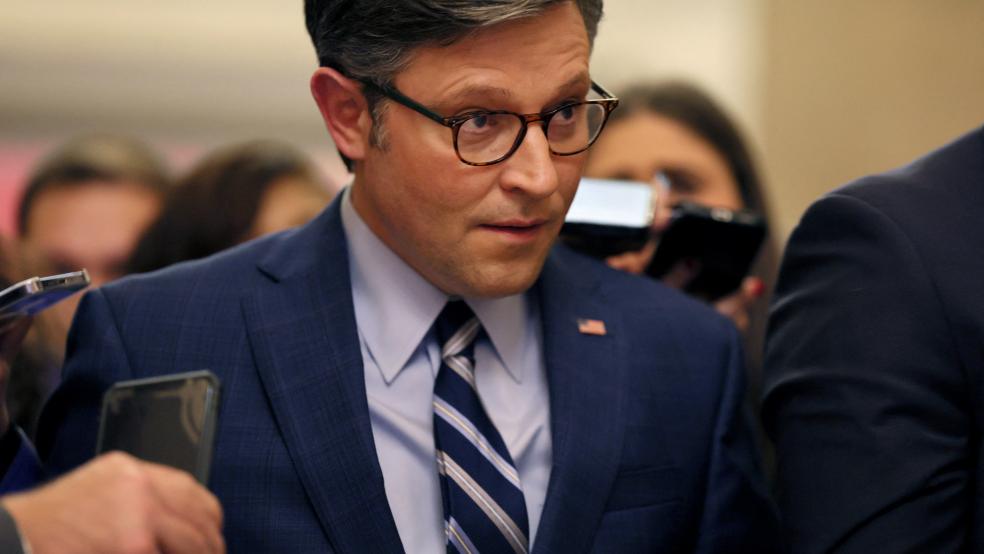House Republican hardliners are pressing Speaker Mike Johnson to back out of the $1.66 trillion spending deal he cut with Senate Majority Leader Chuck Schumer, fueling a sense of chaos in Congress just days away from deadlines to fund the government and keep agencies from shutting down.
Schumer said Thursday that he would start the Senate process for passing a short-term spending bill, setting up a vote next week to keep departments and agencies open while lawmakers work on longer-term appropriations. Schumer did not say how long the stopgap would last, but the two upcoming funding deadlines are January 19 and February 2 and Republican leaders have floated the idea of extending funding into or past March.
“For the most part, both parties – Democrats and Republicans – agree we don’t want a shutdown” Schumer said. “Instead, we want to work together to pass the twelve appropriations bills based off topline funding levels that congressional leadership agreed to last Sunday.”
A band of House conservatives vehemently disagrees with that approach. Those lawmakers have voiced their disgust at the spending deal and, after a dozen members staged a revolt on the House floor Wednesday, some members on Thursday urged the speaker to renege on his agreement and push for steeper spending cuts and tougher restrictions on immigration.
After meeting with GOP hardliners in his office, Johnson told reporters that he was “having thoughtful conversations about funding options and priorities.” But he squelched rumors that he was going to back out of his deal, saying he had “made no commitments” to do so.
“Mr. Johnson has told critics of his deal that he would consider dropping it, but only if they could come up with an alternative that could draw a majority in the House, where the party has just a two-seat edge,” The New York Times reported. “Such a plan would need to draw the backing of both the far right and more mainstream Republicans in competitive districts who have balked at the scope of the spending cuts and conservative policy dictates that their colleagues have demanded.”
Democrats warned Johnson against trying to change the terms of the deal. “We have publicly and clearly and unequivocally reached an agreement on the top-line spending number,” said House Democratic Leader Hakeem Jeffries. “To the extent that House Republicans back away from an agreement that was just announced a few days ago, it will make clear that House Republicans are determined to shut down the government, crash the economy and hurt the American people.”
Some Republicans opposed the idea, too.
"The speaker either gave his word and made an agreement or he didn’t,” Rep. Patrick McHenry of North Carolina said, according to CNN. “So he’s got to decide whether or not he gave his word. And if he gave his word he’s got to fulfill his word.” Rep. Tom Cole of Oklahoma, a veteran appropriator, echoed the point: “I don’t know how you cut a deal and then go back to change the deal. The speaker already cut it,” he said, according to Politico. And Sen. Thom Tillis of North Carolina slammed the notion of backing out, telling Punchbowl News: “If Republicans want to snatch defeat from the jaws of victory in the election this year, fail to fund the government.”
The bottom line: As previous Republican speakers have found out, it’s not possible to appease all factions of a sharply divided GOP conference. It has long been clear that Johnson would need to rely on Democratic votes to pass a spending package in the House or accept a shutdown to satisfy his right flank. If Johnson backs out of his deal, it would significantly boost the odds of a shutdown and all but ensure trouble in any future dealmaking with Democrats. As Johnson weighs his choices — and frustrates both hardliners and moderates — the odds of a shutdown appear to be growing. A partial shutdown would start on January 20.





